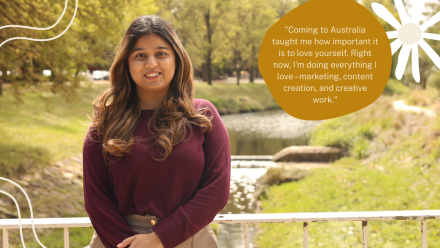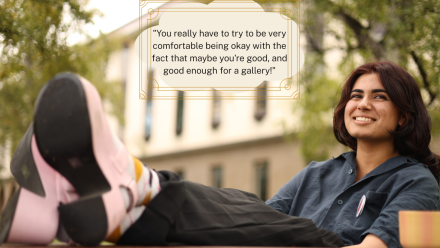Professor Terry Dunbar moves closer to the hill
Professor Terry Dunbar is back in Canberra, a place where she became a mother, to start her role as the Director of the ANU Indigenous Health and Wellbeing Research Institute.
The mother of two, who was born and raised in top-end Larrakia country, is taking on the role at ANU and is happy to move closer to Parliament Hill - where she will no doubt make an impact in the capital.
As a professor in the Research School of Population Health she will be mapping a collaborative discovery about Indigenous social, emotional and cultural health on an ambitious national scale with the hope of informing policy makers.
"This is the first university that actually considered investing in the current areas of health and wellbeing," said Professor Terry Dunbar.
Professor Dunbar says that The ľ«¶«´«Ă˝app Aboriginal and Torres Strait Islander Wellbeing Study, (Mayi Kuwayu), led by Associate Professor Ray Lovett, has started with an "amazing approach".
"This project has done the hard yards and is currently waiting for the surveys to be returned. The magic time comes when these finished surveys start to roll in. Very exciting times ahead," she said.
Professor Dunbar has high expectations on what the team has gathered and is looking forward to unpacking the results together.
"I have a strong commitment to undertake research at the national level for Indigenous people," said Professor Dunbar.
"For those who are from the stolen generations, and for those who have been taken away for other reasons, there's a real need to understand that trauma in a deeper way.
"I do a lot of remote area and rural research and I see the different nuances across the communities. So if we do something on a national level we introduce possibilities to better understand differences between remote, rural and urban areas - including differences within those zones."
The research initiative will be contributing towards the ANU's goal of building new partnerships with Indigenous Australia.
"This is going to provide a huge database that other researchers will be able to access and to provide interpretations to assist with policy development," she added.
After working in law courts, including the Supreme Court, the professor started her research career at Menzies School of Health Research in Darwin.
Since then, Professor Dunbar has been a dedicated leader in Indigenous health with positions at The University of Adelaide, Charles Darwin University and Menzies School of Health Research.
Professor Dunbar's CV is packed with achievements and accomplishments from a long career establishing stand-out research for Aboriginal and Torres Strait Islander health and policy research.
She is visibly moved when she talks about leaving her adult children and 10-acre intergenerational home in Darwin for academia, but university life has an emotional hold on her too.
So much so, her eldest daughter warned her "live a bit" and not work too hard in Canberra.
Why Academia?
"Academia suits me because of the freedom. The freedom to write how you want to write. To think outside the box. I like listening to other people," she said.
"Policy makers don't always gain a 360 degree view of the level of difference across the Indigenous Australian cohort.
"I am excited and privileged to be a part of the research journey that started two years ago."
Professor Dunbar is at the ANU to seek out answers to get the right kind of Indigenous health policy in Australia but she also wants to help heal past wounds.
"It's really important that people now come back together. It's about trying to bring people together for wellbeing, healing and peace."
"Getting Indigenous Peoples to feel they've had an input in helping to establish policy shifts would be a fantastic effort on behalf of the team."
"ľ«¶«´«Ă˝app scale projects do take time to gain traction so I am guessing that it might take me at least 12 months to establish a research plan and to start the ball rolling on the next project."


